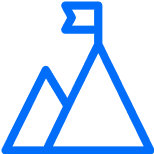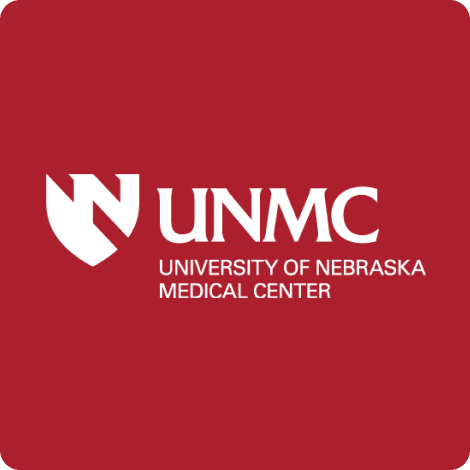When the Occupational Therapy Doctorate (O.T.D.) program at the University of Vermont (UVM) launched in 2022, becoming the first occupational therapy degree program in the state of Vermont, it set a new standard of innovative and accessible education for Occupational Therapy (OT) students.
Well-situated in the University’s College of Nursing and Health Sciences, UVM OT received a $5.75 million grant from the US Health Resources and Services Administration (HRSA) to build state-of-the-art classrooms and laboratories to put the school at the forefront of OT education.
“The funding provides us with an incredible opportunity to incorporate some of the latest technology in rehabilitation to build innovative labs that will benefit UVM students and the greater community,” shared the University of Vermont Occupational Therapy Program Director, Victoria Prignac.
What they needed now was an equally innovative and accessible method of attracting and enrolling top applicants. That’s when they turned to Kira Talent.
Building a future-proofed admissions process
“We are a brand-new program, so we needed an admissions process that could not only assess skills and suitability, but one that would help us market ourselves to a wide pool of applicants,” explained Prignac.
“I’ve done the traditional in-person interview process in previous roles and know how hard it is to get applicants to travel to campus, especially if you’re a new or small program, or your campus, like UVM, is outside of a major city or transit hub,” she continued.
“If we were to require that applicants come to campus, we’d be blocking out a lot of candidates who aren’t able to make the trip.”
With Kira’s Asynchronous Assessment, UVM OT is able to engage a wider pool of applicants, offering them a convenient and accessible way of not only applying, but also learning more about the brand-new program in the process.
“The timed-video responses give us a really authentic snapshot of our applicants, and likewise, the recorded video questions give us the opportunity to show off our program as applicants go through the assessment,” Prignac shared. “Kira really helps us get a better sense of our candidates, and gives our candidates a better sense of what we have to offer, so we can determine if it’s a good fit on both sides.”
“Being a brand-new program, we needed to make sure we were enrolling students who are flexible thinkers and highly adaptable in the classroom,” she continued. “For the same reasons, we needed an admissions platform that would allow us to make changes as we refine our process.”
“Kira is amazing in the level of flexibility and hands-on support that they offer,” Prignac explained. “The Kira team gave us a lot of expert guidance and ideas on what questions to ask in order to identify the competencies we’re looking for in our ideal applicant. They also gave us recommendations as to which questions would elicit a better response on video versus which would be better as written.”
“We decided on three video responses and one written response, and have seen great results within our first cohort,” Prignac shared. “As our program grows and evolves, we’ll be able to adjust the assessment to evolve and scale with us.”
Learn how other OT programs are attracting and enrolling new audiences with Kira
Gaining deeper insights on more applicants
UVM OT uses the Kira assessment to gain deeper insight into applicants after an initial file review. The convenience of an on-demand process enables UVM’s small admissions team to manage a greater number of applicants than if they were to conduct live interviews, allowing them to be more flexible with the GPA cutoffs.
“All of our applicants submit their initial application and admissions essay through OTCAS and anyone who meets the minimum GPA threshold is automatically invited to complete a Kira assessment,” Prignac explained. “For those whose scores might be a little low but their application shows a lot of potential in other areas, we invite them to complete a Kira as well to give us some additional insight.”
“There’s a lot of information that you can glean from the Kira assessment that you just don’t get from a GPA or admissions essay,” she continued. “Essays tend to be heavily edited and proof-read so they’re generally not a reliable example of an applicant’s written communication skills. With the timed-written response in Kira, applicants have a limited time to respond, so it gives us a much more authentic glimpse of their writing ability.”
“In just one cycle, we had several cases where an applicant who was just shy of the GPA threshold submitted their Kira Talent assessment and we knew right away that they were exactly the right person for our program.”
“There were also cases where applicants with a really high GPA submitted their Kira assessment and we could see that they were actually not the best fit for our program,” Prignac added. “During our short time with Kira Talent, we’ve already seen value from being able to identify those differences in applicants.”
Making holistic admissions accessible for small programs
“Kira Talent brings together the best of both worlds for me in terms of an admissions process,” Prignac shared. “Relying on the essay as a component of our holistic process never felt right to me, because there is so much about an applicant that doesn’t come across on paper. However, bringing applicants on to campus limits your applicant pool while conducting interviews online via a tool like Zoom takes a lot of organization and manpower.”
“Kira gives us more touchpoints with our applicants, creating better engagement throughout the admissions process, and allowing us to get deeper insights into our applicant pool.”






